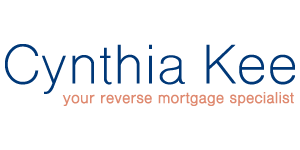Using Your Home Equity as a Retirement Asset
REVERSE MORTGAGE BASICS
Why You Should Consider a Reverse Mortgage
It’s been a while since I’ve talked about the basics of a reverse mortgage and how this versatile retirement financial tool can help provide peace of mind in your golden years.
Reverse mortgages are becoming increasingly recognized by homeowners and financial advisors as a smart and safe way to access an important retirement asset: your home equity.
Most reverse mortgages are government-insured Home Equity Conversion Mortgages (HECMs). You will often hear the terms used interchangeably. Available exclusively to people age 62 and older, a reverse mortgage could help you live more comfortably and be more financially prepared for the future.
For example, you can use a reverse mortgage to :
Avoid selling investments at a loss in a “down” market.
Establish a “stand-by” line of credit that you can tap into as needed. Unlike a traditional Home Equity Line of Credit (HELOC), a reverse mortgage line of credit cannot be reduced or revoked, as long as the terms of the loan are met. And the unused line of credit grows over time.
Supplement retirement income with tax-free funds.
Pay for medical or long-term care costs.
Finance the purchase of a more suitable home, with no monthly mortgage payments.
To be eligible for a reverse mortgage, you must:
Be at least 62 years old
Live in the home as your primary residence
Not be delinquent on any federal debt
Participate in a consumer information session held be an independent counselor who’s approved by the U.S. Department of Housing and Urban Development (HUD)
Some of the Key Benefits of a Reverse Mortgage
The ability to use your home equity to help you maintain a more comfortable standard of living, in your own home.
Tax-free loan proceeds you can use in multiple ways.
Great flexibility. You can choose to take your proceeds as a line of credit; monthly advances for a set period of time; a monthly stream of funds for as long as you live in your home; a lump sum; or a combination of these options.
No monthly mortgage payments. If you qualify and have an existing mortgage, home equity loan or any other type of debt, you can pay it off and reduce your monthly expenses. Or, if you own your home free-and-clear, you can get the additional funds you need with no monthly mortgage payments.
*One thing to note is that as the homeowner, you remain responsible for paying property taxes, homeowner’s insurance and homeowner’s association dues if applicable.
How Much Money Can You Get?
This depends upon a number of factors including your age, your home’s current appraised market value, the amount of equity, FHA lending limits, the current interest rate, and the reverse mortgage product and payment option you choose. If you have an existing mortgage, your reverse mortgage will first be used to pay that off.

